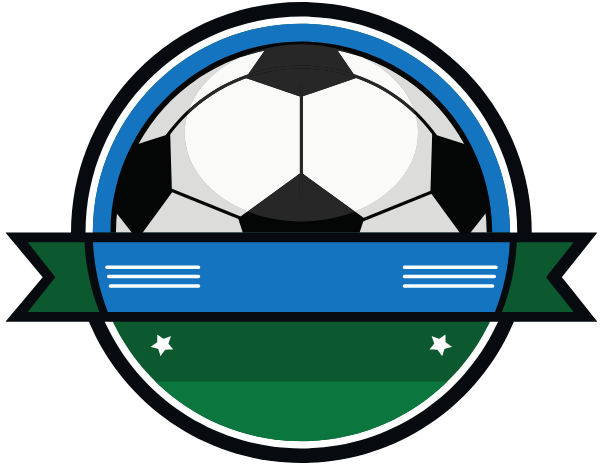General Rules of Racketlon
Have you ever pondered the intricate dance of rules that govern the world of Racketlon? As you step onto the court, a domain where agility meets precision, a deep understanding of the General Rules becomes your guiding light. From the selection of your racket to the conduct expected during gameplay, each aspect plays a crucial role in shaping your experience. But what lies beyond the surface? Stay tuned to uncover the nuanced layers of strategy and sportsmanship that define this dynamic sport.
Racket Selection and Regulations
When picking a racket for Racketlon, make sure it complies with the regulations set forth for the sport. Racketlon allows players to use different types of rackets for each of the four sports: table tennis, badminton, squash, and tennis. Understanding the equipment regulations to guarantee fair play and adherence to the rules is vital.
In Racketlon, players can choose from various types of rackets based on their preferences and playing styles. For table tennis, players typically use paddles with rubber surfaces on each side. When it comes to badminton, rackets with different string tensions and weights are common. Squash rackets have smaller heads compared to tennis rackets, which are used for the final sport in the sequence.
Equipment regulations in Racketlon are in place to maintain a level playing field and prevent any unfair advantages. These regulations specify the dimensions, materials, and other characteristics that rackets must meet to be considered legal for use in the sport. Familiarizing yourself with these rules to avoid any penalties or disqualifications during competitions is important.
Order of Play and Rotations
Understanding the order of play and rotations in Racketlon is essential for players to navigate through the sequence of sports efficiently. Player rotations refer to the sequence in which players move from one sport to another during a Racketlon match. Typically, players start with table tennis, followed by badminton, squash, and then tennis. This rotation guarantees that each player faces each opponent in each sport, promoting fairness and balance in the competition.
Strategic advantage can be gained through smart player rotations. For instance, a player may excel in a particular sport and strategically position themselves to face their opponent during that sport, maximizing their chances of gaining points. Additionally, understanding the order of play allows players to mentally prepare for each sport, adapting their gameplay and conserving energy accordingly.
Being aware of the order of play and player rotations also enables players to plan their strategies effectively. By analyzing their opponents' strengths and weaknesses in each sport, players can adjust their tactics to exploit vulnerabilities and capitalize on their own strengths. This strategic approach not only enhances performance but also adds an element of anticipation and excitement to the game.
Serving and Scoring Guidelines
To grasp the fundamental aspects of serving and scoring in Racketlon, familiarize yourself with the established guidelines. When serving in a Racketlon match, it is essential to understand the rules to guarantee fair play and maintain proper etiquette. Here are some key points to keep in mind:
| Serving Guidelines | Scoring Guidelines |
|---|---|
| Avoid foot faults by making sure both feet are behind the baseline when serving. | Faults during a serve result in the loss of a point. |
| Maintain proper etiquette by serving to the correct side of the court. | Let serves are allowed in Racketlon. If the serve hits the net and lands in the correct service box, it is retaken without penalty. |
| Be consistent with your serving motion to avoid confusion or disputes. | Each game is scored individually, with a game being won by the first player or team to reach 21 points with a margin of two points. |
Timeouts and Rest Periods
Moving on to timeouts and rest periods in Racketlon, it is important for players to utilize these breaks strategically to regroup and recover during matches. Strategic breaks play a critical role in maintaining a competitive edge and ensuring peak performance throughout the game. When taking a timeout, it is essential to focus on mental preparation as much as physical recovery. Use this time to assess your opponent's playing style, reflect on your own performance, and adjust your strategy accordingly.
During timeouts, remember to stay composed and use the opportunity to recalibrate your mindset. Take deep breaths, visualize successful plays, and mentally reinforce your game plan. This mental preparation can make a significant difference in your performance once the game resumes.
Rest periods between matches are equally important in Racketlon. Use this time to rest your body, hydrate, and refuel with nutritious snacks to maintain your energy levels. Stay mentally sharp by reviewing your tactics and mentally rehearsing your next game plan.
Umpire's Role and Decisions
The umpire's primary responsibility during a Racketlon match is to guarantee fair play and enforce the rules consistently. Role clarity is essential for the umpire to effectively officiate a match. It is important that the umpire's role is clearly defined before the game begins, ensuring that both players understand who has the final say on decisions.
Consistent rulings by the umpire are paramount in maintaining the integrity of the game. It is imperative that the umpire applies the rules uniformly throughout the match, without bias towards either player. Consistency in decision-making helps create a level playing field and fosters a sense of trust between the players and the umpire.
Clarity in the umpire's role and the application of consistent rulings are fundamental aspects of a well-officiated Racketlon match. Players rely on the umpire to make fair and just decisions, and it is the umpire's duty to uphold the rules of the game with integrity. By maintaining role clarity and providing consistent rulings, the umpire contributes to the overall enjoyment and fairness of the match.
Code of Conduct and Fair Play
Maintaining a high standard of conduct and promoting fair play are essential aspects of participating in a Racketlon match. Respectful behavior towards opponents, officials, and spectators is fundamental in upholding the integrity of the game. Sportsmanship ethics should be at the forefront of your actions, encompassing honesty, integrity, and respect for the rules and regulations of Racketlon.
In the heat of competition, it can be easy to get caught up in the moment and let emotions take over. However, it is critical to remember that displaying respectful behavior towards all individuals involved not only reflects positively on yourself but also fosters a positive and inclusive environment for everyone participating.
Fair play extends beyond abiding by the rules of the game; it also involves treating others with dignity and respect. Whether you win or lose, maintaining grace and humility is a proof of your character and sets the tone for a harmonious sporting experience. Remember, the true essence of sportsmanship lies in how you conduct yourself both on and off the court. Aim to embody the values of respectful behavior and sportsmanship ethics in every aspect of your Racketlon journey.
Frequently Asked Questions
Can Players Use Their Own Personal Equipment, Such as Shoes and Clothing, During a Racketlon Match?
You can definitely use your own shoes and clothing during a racketlon match. Your personal equipment, like footwear and attire, is important for comfort and performance. Just make sure they meet match regulations.
Are There Specific Rules Regarding the Use of Electronic Devices, Such as Fitness Trackers or Smartwatches, During a Match?
During a match, it is crucial to respect the etiquette of the game. Avoid wearing wearable technology like fitness trackers or smartwatches to maintain fairness and uphold the principles of sportsmanship in racketlon.
How Are Disputes or Disagreements Between Players Resolved During a Match?
During a match, line call disputes are typically resolved by referring to the Code of Conduct. This guarantees fair play and sportsmanship. By following these guidelines, players can handle disagreements respectfully and maintain the integrity of the game.
Are There Any Restrictions on Coaching or Receiving Advice From Spectators During a Match?
When it comes to coaching restrictions and spectator advice during a match, remember that interference can disrupt your focus and strategy. Stay sharp and rely on your skills rather than outside influences for success.
Are There Any Specific Guidelines for Handling Equipment Malfunctions or Breakages During a Match?
When dealing with equipment malfunctions or breakages during a match in Racketlon, you can request a timeout to replace the faulty gear. Remember to adhere to fair play principles and respect the rules for a smooth resolution.






